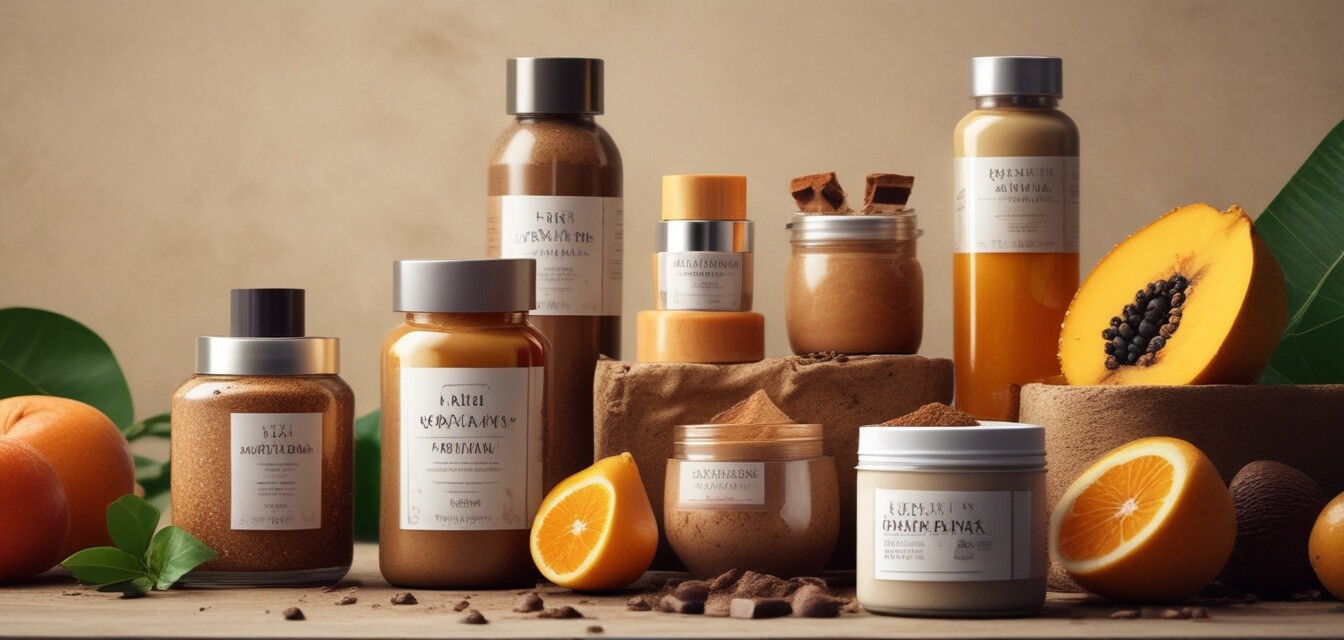
The Best Exfoliators for Black Skin: What to Look For
Key Takeaways
- Look for natural exfoliants like sugar and coffee grounds to avoid irritation.
- Incorporate gentle chemical exfoliants, such as glycolic or lactic acid.
- Moisturizing ingredients should complement exfoliating properties.
- Regular exfoliation helps in achieving a brighter and even skin tone.
- Always conduct a patch test when trying new products.
Exfoliation is a vital part of any skincare routine, especially for individuals with Black skin, which can be prone to issues like hyperpigmentation and uneven texture. In this comprehensive guide, we will explore what you need to know when choosing the best exfoliators for Black skin.
Why is exfoliation important for Black skin?
Exfoliation helps remove dead skin cells, revealing fresh skin underneath. This process is crucial for enhancing skin radiance and can help with issues related to hyperpigmentation, which may be more common in darker skin tones. However, it's essential to choose the right exfoliator to avoid irritation.
Types of Exfoliators
Exfoliators can be categorized into two main types: physical and chemical. Here's a breakdown of each type and what to look for:
| Type | Description | Recommended Ingredients |
|---|---|---|
| Physical Exfoliators | These contain small particles that manually scrub away dead skin cells. | Brown sugar, coffee grounds, oatmeal |
| Chemical Exfoliators | These use acids or enzymes to dissolve dead skin cells. | Glycolic acid, lactic acid, fruit enzymes |
Physical exfoliators
Physical exfoliators can be effective but may require caution. Depending on the size and texture of the particles used, they can cause micro-tears in the skin. Here are some well-tolerated physical exfoliating ingredients:
- Brown sugar: A natural and gentle option that is less abrasive.
- Coffee grounds: Known for their invigorating properties and mild scrubbing action.
- Oatmeal: Provides a soothing effect while effectively exfoliating.
Chemical exfoliators
Chemical exfoliators often provide more consistent results without the harsh scrubbing. They can target specific skin concerns:
- Glycolic acid: An alpha hydroxy acid (AHA) perfect for improving texture and brightness.
- Lactic acid: A gentle AHA that hydrates while exfoliating.
- Fruit enzymes: Natural exfoliants that work well on sensitive skin types.
What to Look for in Exfoliators for Black Skin
When selecting an exfoliator, consider the following factors:
1. Skin type
Your skin type greatly influences the type of exfoliator you should choose. Here’s a brief guide:
- Oily skin: Can benefit from stronger chemical exfoliants.
- Dry skin: Look for exfoliators with hydrating properties.
- Sensitive skin: Stick to gentle physical exfoliators or mild chemical options.
2. Sensitivity
Sensitivity is a common concern. Ensure that any product you choose has soothing ingredients like aloe vera or chamomile.
3. Ingredients to avoid
Some ingredients may cause adverse reactions. Steer clear of:
- Alcohol-based formulas that can dry out the skin.
- Harsh scrubs containing large or sharp particles.
- Fragrances that can irritate sensitive skin.
How Often Should You Exfoliate?
The frequency of exfoliation depends on your skin type:
| Skin Type | Frequency |
|---|---|
| Oily Skin | 2-3 times a week |
| Dry Skin | Once a week |
| Sensitive Skin | Once every 1-2 weeks |
Tips for Successful Exfoliation
Beginner's Section
- Always start with a patch test before using a new product.
- Follow up with a good moisturizer after exfoliating to hydrate your skin.
- Use sunscreen daily, especially after using chemical exfoliants.
- Avoid exfoliating when your skin is active with acne or any irritation.
Conclusion
Choosing the right exfoliator for Black skin is a crucial step towards achieving a healthy and radiant complexion. By understanding the various types of exfoliants and what to look for, you can enhance your beauty routine without compromising skin health.
For more tips on skincare, check out our Buying Guides section. Explore more about skincare products that are perfect for your unique needs!
Pros
- Improves skin texture and tone
- Promotes a radiant complexion
- Can help fade dark spots
Cons
- May cause irritation if overused
- Not suitable for all skin types